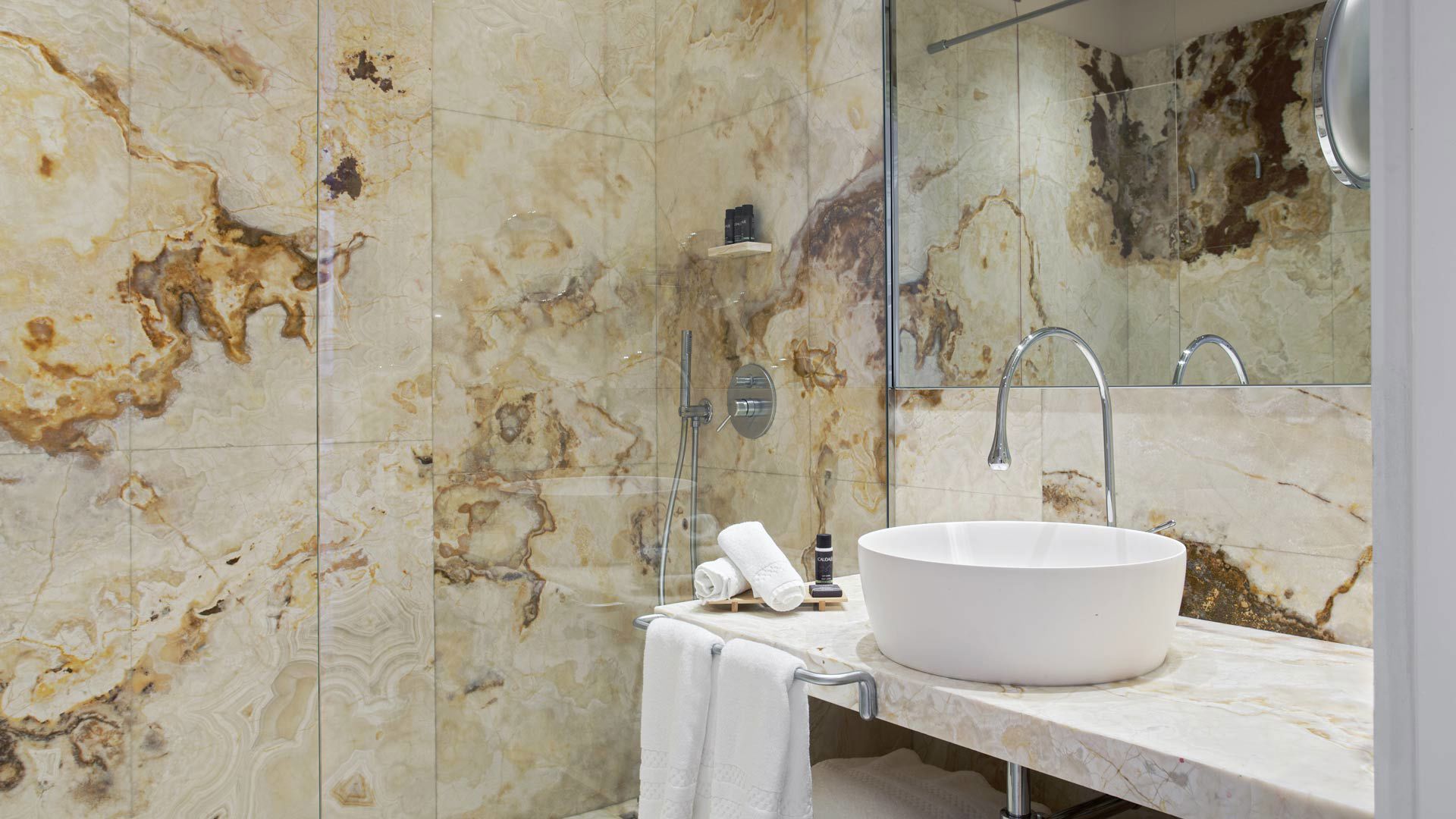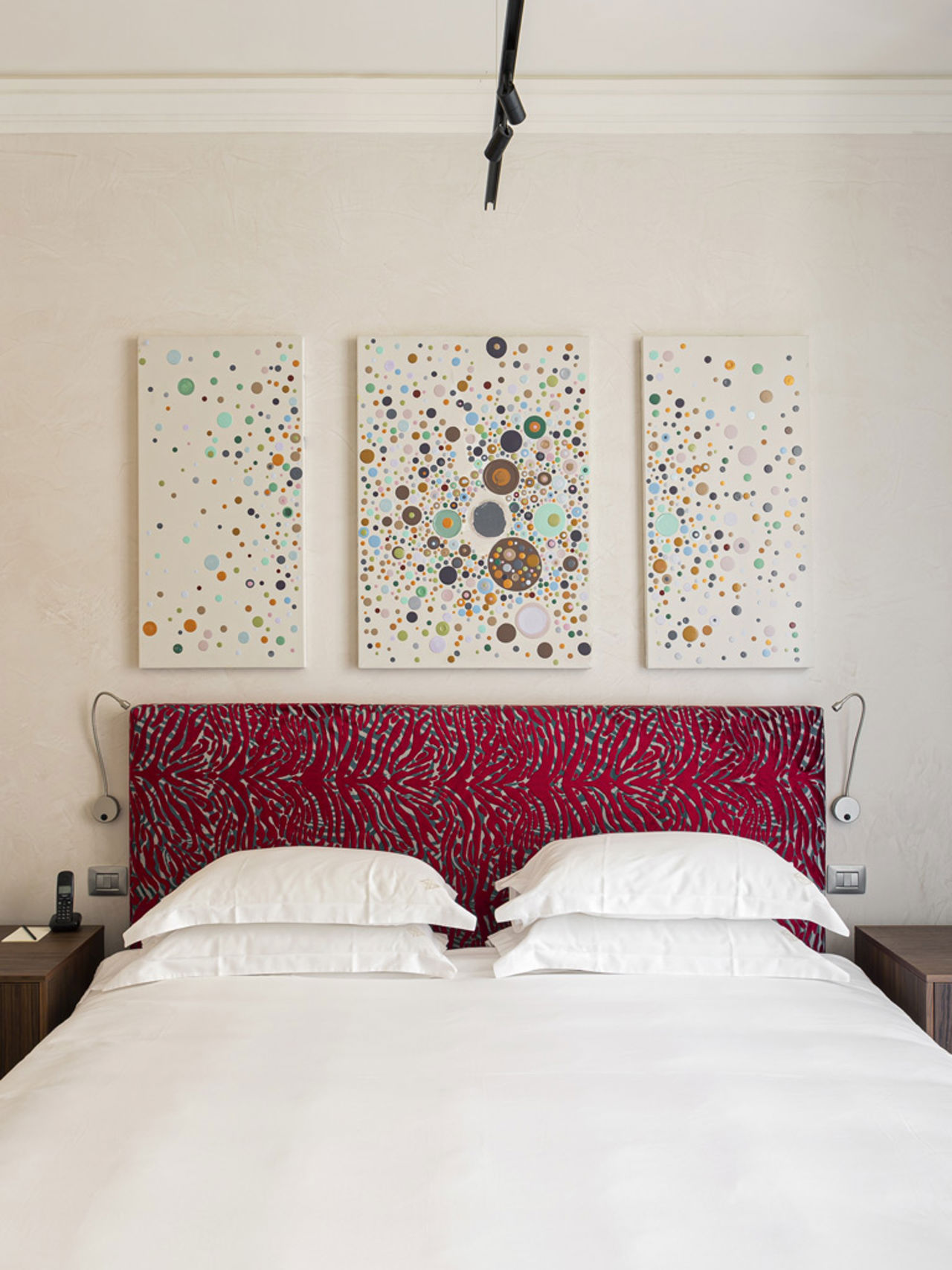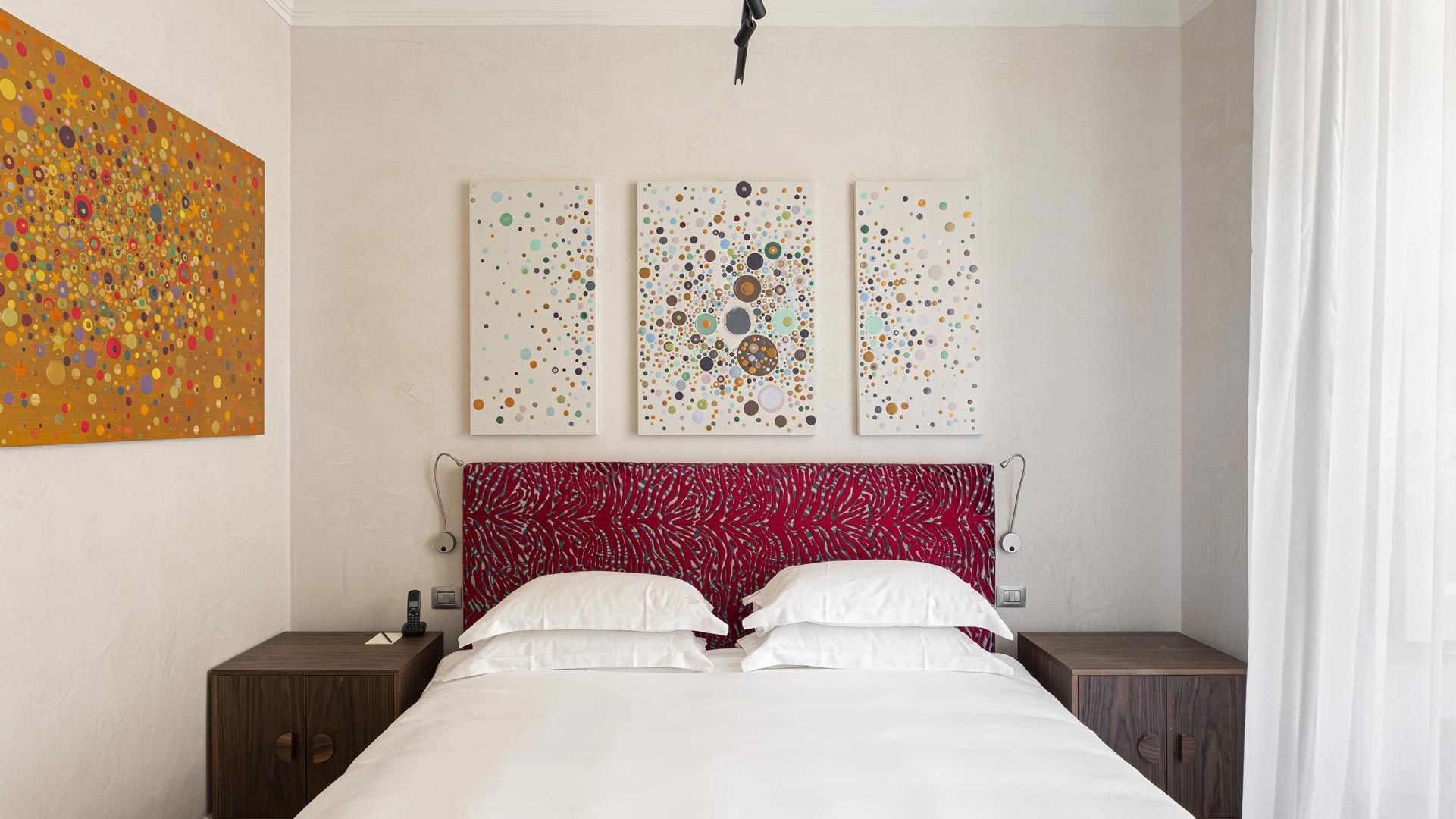Moises Santos lavora con la pittura e l’installazione, esplorando la relazione tra forme naturali e artificiali. Le sue tele, caratterizzate da una grande energia di materia e colore e dalla ripetizione e sovrapposizione di elementi dalla forma arrotondata, sono un inno alla vitalità delle forme naturali. Sebbene alimentato da esperienze che rimandano alla tradizione dell’astrazione classica, l’artista di origine brasiliana guarda alla realtà come a un territorio di infinite suggestioni ed esperimenti, sfuggendo a qualsiasi definizione rigida sul suo stile e sul suo lavoro. Egli stesso si definisce un artista in continua evoluzione e cambiamento, che cerca di sottrarsi a ogni tipo di classificazione.
Moises Santos
Artisti


I soggetti delle sue tele evocano un cielo stellato, una porzione di universo, un fondale marino, il riflesso dell’acqua su una superficie o l’interno di un organismo naturale. Sono riflessioni sul rapporto tra micro e macro, tra forme infinitamente piccole e forme infinitamente grandi, come l’universo. Tuttavia, le opere di Moises Santos sono anche metafore visive di un universo formale caratterizzato da fluidità, instabilità e un’energia vitale incontrollata. Con il suo lavoro, l’artista cerca di raccontare il senso di fragilità che l’uomo sperimenta ogni giorno, quello stato di insicurezza e transitorietà che lo pone di fronte al potere di una forza superiore, sia essa Dio o la natura, che inevitabilmente rivela i limiti umani. “Queste composizioni sono una proiezione di viaggi universali in cui mi esprimo attraverso il colore,” spiega l’artista.
Moises Santos è nato ad Aracaju, in Brasile, nel 1972. Il suo amore per i colori, la danza e la musica si è presto trasformato in un’urgenza espressiva che ha coinciso con il suo arrivo in Italia, dove ha iniziato la sua prima stagione produttiva. Attualmente vive e lavora in Italia, tra Milano, dove ha il suo atelier sul Naviglio Grande, ed Erba. Distintosi per la sua personalità e per l’energia sprigionata dalle sue opere, già nelle sue prime mostre collettive e personali Moises Santos ha sperimentato tecniche miste, utilizzando acrilico, gesso acrilico e olio per creare forme senza forma. Nel 2005 ha creato sul Naviglio Grande a Milano delle piccole barche di carta, un’installazione temporanea legata a un progetto di arte pubblica, la prima di una lunga serie di installazioni artistiche che hanno invaso tutta la Lombardia, l’Italia e persino l’estero. Ha inoltre esposto in numerosi musei pubblici e privati, come l’Acquario Civico di Milano, il Castel dell’Ovo a Napoli e fiere d’arte internazionali.


